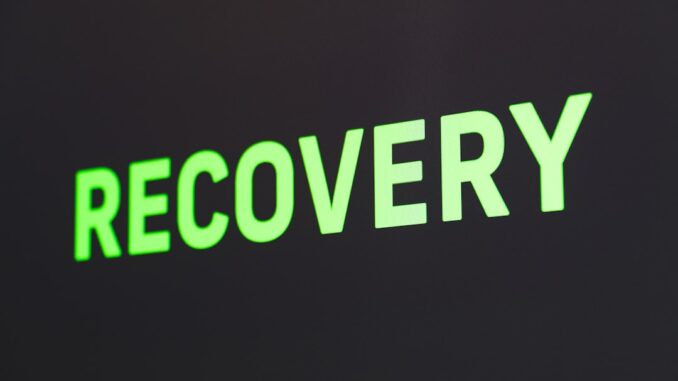
Summary
This article offers a practical guide for families supporting loved ones through addiction recovery. It emphasizes education, communication, setting boundaries, and self-care. This advice aims to empower families and foster healthy, supportive relationships during recovery, recognizing that addiction affects the whole family. Remember, recovery is a journey, not a destination.
** Main Story**
Navigating Addiction Recovery: A Family’s Guide – It’s a Marathon, Not a Sprint
Addiction? It’s a beast, isn’t it. It doesn’t just grab the person struggling; it wraps its claws around the whole family. That’s why helping a loved one through recovery is a team effort, one that requires a game plan. This guide? Think of it as your playbook, your step-by-step guide to navigating a tough road, together.
Step 1: Knowledge is Power – Educate Yourself
First thing’s first: get educated. I mean, really understand what addiction is. It’s not a moral failing; it’s a disease that rewires the brain. If you don’t understand the science behind it, how can you possibly offer meaningful support? NIDA (National Institute on Drug Abuse) and SAMHSA (Substance Abuse and Mental Health Services Administration) are goldmines for reliable info. Spend some time on their websites. Trust me, it’ll change how you see things, and how you interact with your loved one. It helped me to really understand how to empathise and offer real support.
Step 2: Open the Lines – Honest Communication
Next, talk. Really talk. Easier said than done, I know. Start by expressing your worries, but skip the judgement. Offer support, ask how you can help, and then…listen. I mean, actually listen. It’s easy to interrupt with advice, or get defensive, but resist the urge. Encourage them to get professional help and even offer to tag along to appointments. It can be really intimidating to go it alone, so your presence can make a huge difference. Maybe have them chose the professional help, it might empower them more, who knows?
Step 3: You Can’t Pour from an Empty Cup – Seek Support
Listen up; you aren’t a superhero. You can’t help anyone if you’re running on fumes. Seriously. Join Al-Anon or Nar-Anon—these groups are lifesavers. They’re a safe space to share your experiences, connect with others walking the same path, and learn healthy coping strategies. Therapy? It’s not just for the person struggling with addiction. You deserve support too! I’ve found therapy helpful in processing my emotions and setting boundaries. Which brings me to…
Step 4: Draw the Line – Establish Boundaries
Okay, boundaries. This is where things get tough. Setting boundaries isn’t mean, it’s necessary. It protects you and helps your loved one take responsibility. Are you constantly bailing them out financially? Covering up their mistakes? That’s enabling, not helping. Clearly communicate your limits and stick to them. It might be hard, but it’s crucial for everyone’s well-being. Trust me, it will be worth it in the long run.
Step 5: Call in the Experts – Encourage Professional Help
You’re not a doctor, you’re not a therapist, so don’t try to be one! Research treatment options together—individual therapy, group therapy, inpatient, outpatient. Find a program that fits their needs. Offer to help with logistics, appointments. Patience is key here. It might take time to find the right fit, and that’s okay. I have seen it take people years to find the correct help, so stay with them, okay?
Step 6: Celebrate the Wins – Focus on the Positive
Every step forward, no matter how small, is a victory. Celebrate it! Positive reinforcement can work wonders for motivation and self-esteem. Focus on their strengths, remind them of their capabilities, and don’t let them forget it. Recovery is a rollercoaster, there will be ups and downs, so consistent encouragement is crucial. One day at a time, right?
Step 7: Fill Your Own Tank – Practice Self-Care
I’m going to say it again because it’s that important: you can’t help if you’re depleted. Supporting someone through addiction recovery is draining, physically and emotionally. So, do things that nourish you—exercise, healthy eating, hobbies, time with friends, therapy for yourself. It’s not selfish; it’s essential. Think of it as putting on your own oxygen mask before assisting others.
Long-Term Support and Understanding – It’s a Marathon
Now, here’s the thing: recovery isn’t a one-time event, it’s a journey. A long one. Setbacks are a possibility, relapse might happen. Be prepared to offer continued support and understanding during those tough times. Encourage them to see relapse as a learning opportunity and get back on track with their treatment plan. And also, don’t forget what you have learnt, it is a key to helping your loved one.
Keep those lines of communication open, keep attending those support groups, and don’t hesitate to seek professional guidance when needed. Remember, you’re in this together, and your consistent support can make all the difference.
Substance Use: The Scope of the Problem
We need to talk about the bigger picture. Substance use disorders? It’s a widespread issue, affecting millions globally. Understanding the scale of the problem? It’s crucial for developing effective strategies to tackle it.
- Millions worldwide are wrestling with substance use disorders, be it alcohol, drugs, or prescription meds. It’s chronic. It’s relapsing. It’s characterized by compulsive seeking and use despite the obvious harm it causes.
- Substance use disorders leave a trail of devastation for individuals, families, and communities. Health problems, financial ruin, broken relationships, even death. It’s a high price to pay.
- Effective prevention programs can help reduce the numbers. Treatment options offer hope, including behavioral therapies, medications, and support groups. Recovery? It’s always possible with the right support and resources. So don’t give up hope!
- We need ongoing research. Scientists are working hard to understand the underlying causes of addiction and develop better treatments. So, let’s keep supporting them, and keep fighting this fight. What do you think?


Be the first to comment